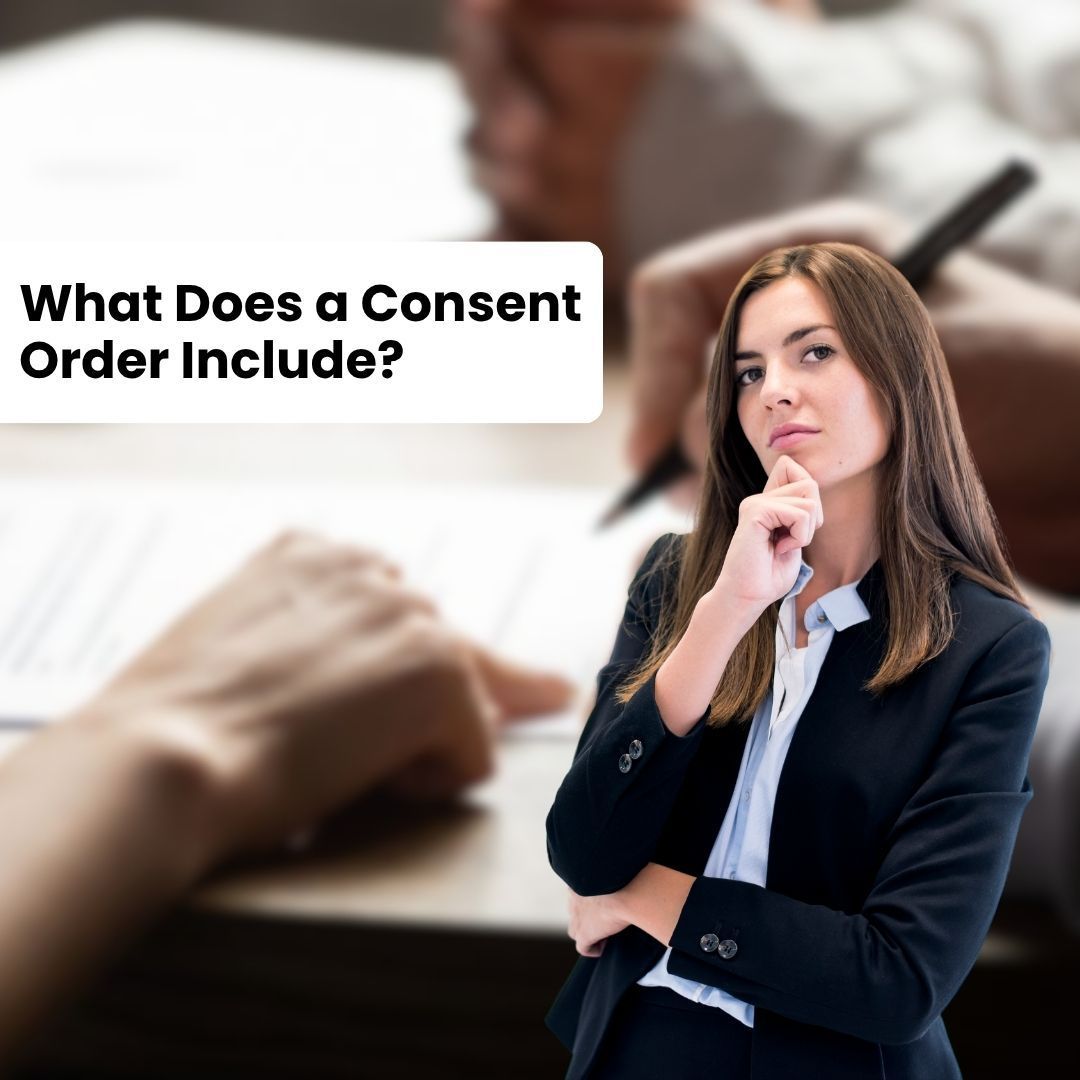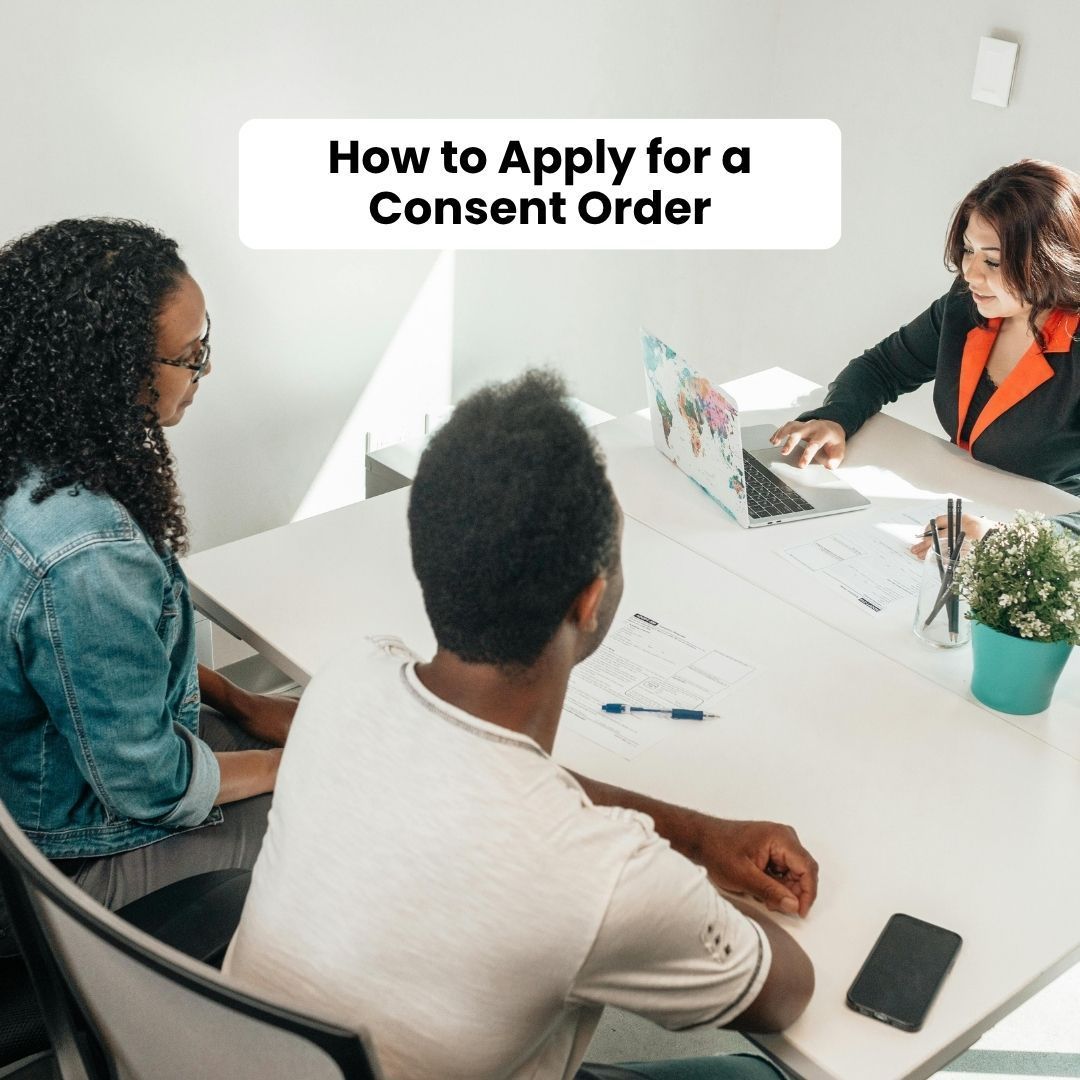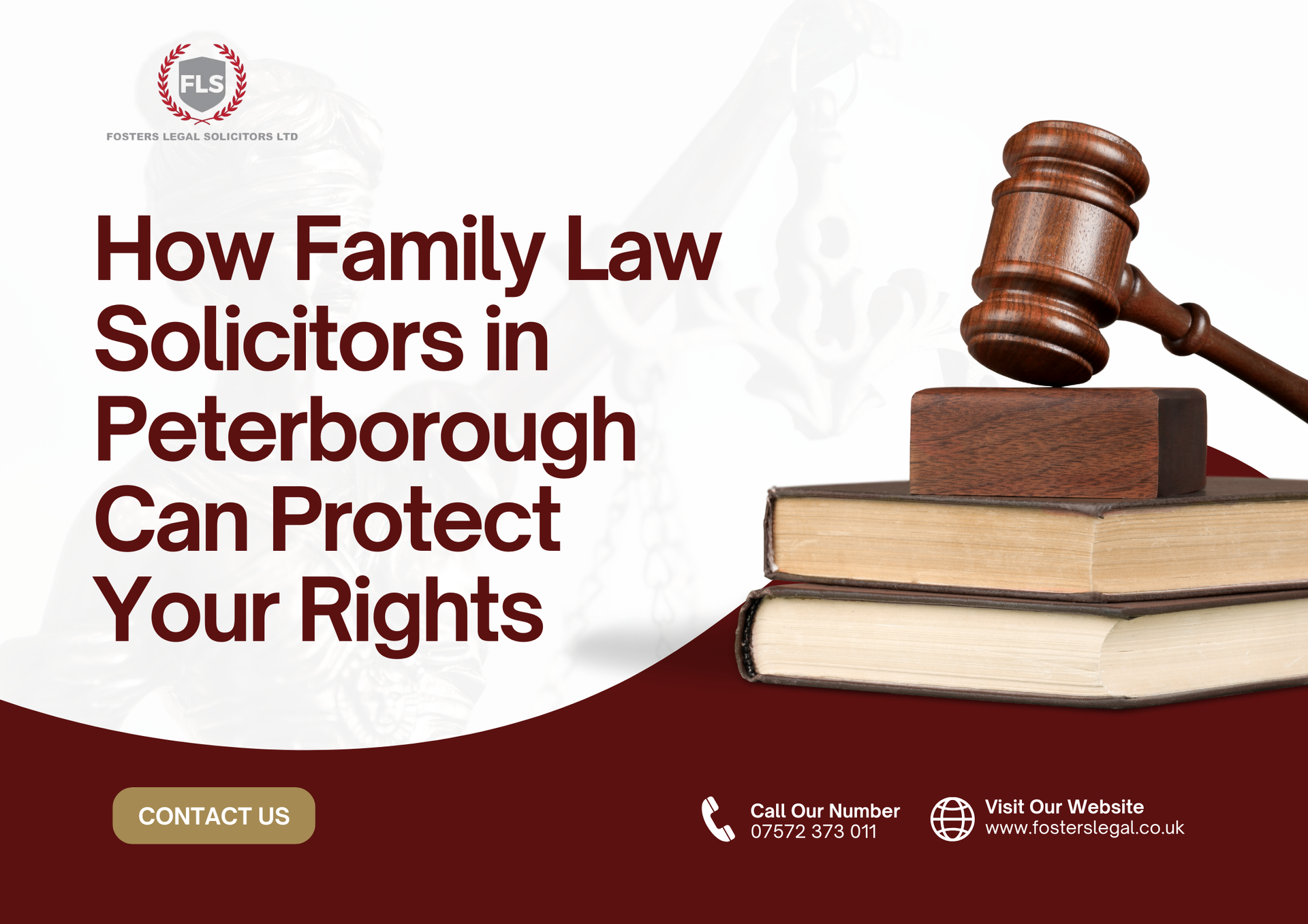What Is a Consent Order and Why Every Couple Should Know?
What Is a Consent Order and Why Every Couple Should Know?

Separation or divorce is never a straightforward experience. Even without considering emotions, paperwork, and concerns over what comes next, it is easy to feel lost when financial and property assets are involved. Whether couples find themselves in towns like Stevenage, Peterborough, or Watford, it often appears that many couples ask the same question when they want to move on from one another: What is a consent order, and what do people find so important?
Without the consent order, promises made either verbally or in writing can easily break down, leading to unforeseen claims in the future.
In this guide, we'll walk through each requirement to help you understand not only how a consent order works, but also how it protects your financial and emotional well-being after separation. Knowing how and when to seek advice from a
family solicitor
can make each step smoother and more effective.
So first, let's start with the real purpose of a consent order, and why it is more significant than the majority of individuals really understand.
What is the Purpose of a Consent Order

A consent order is a legally binding document that records how separating partners agree to divide their finances and assets. It’s usually part of a divorce or separation and includes details about property, savings, pensions, and child maintenance. Once submitted to the court and approved by a judge, it becomes legally enforceable preventing future claims and giving both partners financial security and clarity.
Key Features of Consent Order
Legal Enforceability: Once the court seals it, both parties are bound by law. It’s no longer just a promise; it’s a legal duty that can be enforced if one side doesn’t follow through.
Financial Agreement: It clearly sets out how assets, property, pensions, and savings will be divided. Firms like Fosters Legal Solicitors explain that it avoids confusion or disputes later.
Child Arrangements: If children are involved, it can include where they live and how time is shared, ensuring stability and fairness for everyone.
Court Approval: A judge reviews the document to ensure it’s fair before making it official, as required by GOV.UK.
Future Protection: Once sealed, it prevents future financial claims or surprises years down the line, giving both parties peace of mind.
Compliance: Both parties must adhere to the agreed-upon terms. If not, the order gives you a clear path to enforce your rights through the court.
For example, a couple in Watford once agreed to sell their home and share the proceeds equally. Their
solicitor in Watford helped them turn that agreement into a consent order. Years later, when one tried to claim more, the court refused because their consent order protected the original agreement.
In the next section, we’ll look deeper into what a consent order actually includes and how it shapes your financial and family arrangements after separation
What Does a Consent Order Include?

Now that we understand what is a consent order, let’s see what it actually covers. In family law, a consent order records the final terms agreed between a separating couple, turning personal decisions into a clear legal framework. It’s designed to settle financial and family matters fairly and permanently.
Here’s what’s usually included:
- Asset Division: Lists how property, savings, pensions, and debts are split between both parties.
- Maintenance Obligations: Outlines any spousal or child maintenance payments, when they start, and how long they continue.
- Child Arrangements: If children are involved, it defines where they’ll live and how parenting time is shared, ensuring stability.
- Inheritance or Special Assets: Sometimes, couples include how future assets, like inheritance or business shares, will be treated.
Next, we’ll answer a common question: do couples who have already agreed to split still need a consent order?
Do couples who have agreed to split still need a consent order?
Indeed, couples will want to create a consent order to formalize their agreement and make it legally binding. Otherwise, one party can make a claim in the future for a financial settlement, and that can take place years later, and that could lead to disputes and involvement from the court.
With an understanding of what is a consent order, and why it is important, the next step is to know how to get one. Here’s a straightforward guide to applying for a consent order in the UK.
How to Apply for a Consent Order

Once you and your partner have agreed on how to split your assets, the next question is how to make it official. Applying for a consent order in the UK is a structured but straightforward process. Here’s how you can do it the right way with clarity and confidence.
1. Reach a Mutual Agreement
Before anything else, both parties must agree on how to divide money, property, pensions, or any joint assets. It’s best to have a
family and divorce solicitor guide these discussions to make sure the agreement is fair, realistic, and legally sound. Having legal support early avoids misunderstandings later.
2. Draft the Consent Order
Once the agreement is settled, a right
solicitor near you will draft the consent order. The wording must be precise and follow legal standards. A well-drafted order avoids delays or rejection by the court. This is not a formality; a poorly written order can lead to problems when enforcing it later.
3. Complete Form A
To start the process officially, you need to file Form A (Notice of intention to proceed with a financial application). This form alerts the court that you’re seeking a financial order. It’s a small but essential step that puts your agreement into the UK legal system.
4. Provide Financial Disclosure (Form D81)
Both parties must complete a
Statement of Information, also known as Form D81. This form shows the court that you’ve shared full financial details with each other. Judges rely on this transparency to confirm the agreement is fair to both sides. Without it, the court won’t approve the order.
5. Submit to the Court
After preparing all the documents, your solicitor will submit them to the family court along with the required fee. A judge reviews the papers to ensure the agreement is reasonable and that no one is being taken advantage of. You don’t usually have to attend a hearing unless something needs clarification.
6. Wait for the Judge’s Approval
If the judge is convinced, they will "seal" the consent order. If sealed, the order is legally binding, which means both parties must comply with the terms. This last step gives your agreement the same force of a court judgment, which is something that informal agreements can never provide.
7. Implement the Terms
Once the sealed order has been received, either side must comply with the terms. Whether that means transferring property, splitting savings or paying maintenance, working collaboratively on the implementation guarantees that the sealed order will have value beyond merely being legal.
Now that you know how to apply for a consent order, the next thing most couples ask is how long it actually takes for approval. Let’s look at what to expect in terms of timeframes and what can affect the process.
What is the Cost of a Consent Order in the UK?
In the UK courts, fees for a consent order will be approximately £60. Solicitor fees are typically between £1,500 and £3,000 plus VAT, depending on complexity. In Stevenage, Peterborough, or Watford, the figure may vary somewhat, but spending money to get the right legal assistance from a
trusted lawyer ensures you get it right, avoids expensive mistakes or difficulties along the way.
Now, let’s see how the right legal guidance can truly make all the difference.
How the Right Legal Help Can Make All the Difference?

Getting a consent order right is not about paperwork, it’s about protecting your future. Having an experienced family law solicitor by your side can change everything.
- Experience that truly counts: A solicitor who has worked for years with couples in knows how local courts operate, what judges expect, and how to avoid common drafting errors that could delay approval.
- Real-world understanding: From years of helping clients, we’ve seen cases where couples thought their agreement was complete, yet missed key clauses—leaving them exposed to future financial claims.
- Ensuring fairness and clarity: Skilled solicitors at Fosters Legal Solicitor make sure every clause reflects your real intentions, with full financial disclosure and fair terms that stand up in court.
- Local expertise that simplifies the process: Our team ensures your application is seamless, accurate, and stress-free giving you the confidence that everything is handled correctly.
If you’re ready to move forward with peace of mind, Fosters Legal Solicitor is here to guide you every step of the way.
Conclusion
We started by asking, “What is a consent order?” and now you know what it means, and more importantly, you know why it’s worth having, how to get one, the costs involved and how having the right solicitor is such an important factor.
If you are starting the separation or divorce process in Stevenage, Peterborough or Watford, the process of securing your finances and by doing so protecting yourself against future claims starts with putting a consent order in place.
You don't have to do it alone. With the right legal support behind you, you can move forward with clarity and confidence knowing that every detail has been taken care of properly.
Get an appointment with a Fosters Legal Solicitor now, and get the agreement sealed properly, so you can focus on moving forward with peace of mind.
Frequently Asked Questions
What is the purpose of a consent order?
The main purpose of a consent order is to make your financial agreement after a separation or divorce legally binding. It protects both parties from future claims and ensures each side follows what’s been agreed.
What is meant by consent order?
A consent order is a legal document approved by a court that confirms how a couple will divide their assets, property, savings, and any maintenance payments after separating.
How much does a consent order cost in the UK?
The court application fee is around £60, while solicitor fees usually range between £1,500 and £3,000 plus VAT, depending on how complex your financial arrangements are
What is the difference between an order and a consent order?
An order is imposed by the court after a hearing, while a consent order is based on an agreement both partners reach voluntarily and submit for court approval.
Is it worth getting a consent order?
Yes, absolutely. It gives your agreement legal protection, prevents future disputes, and provides long-term peace of mind—making it a smart step in any divorce or separation.












